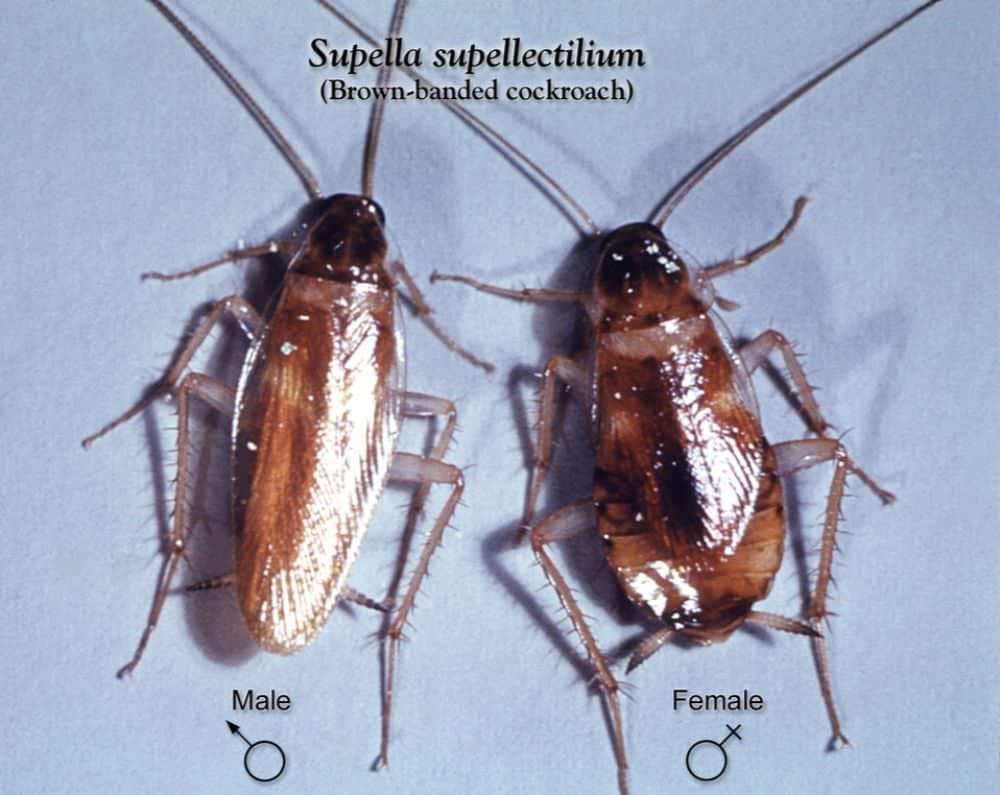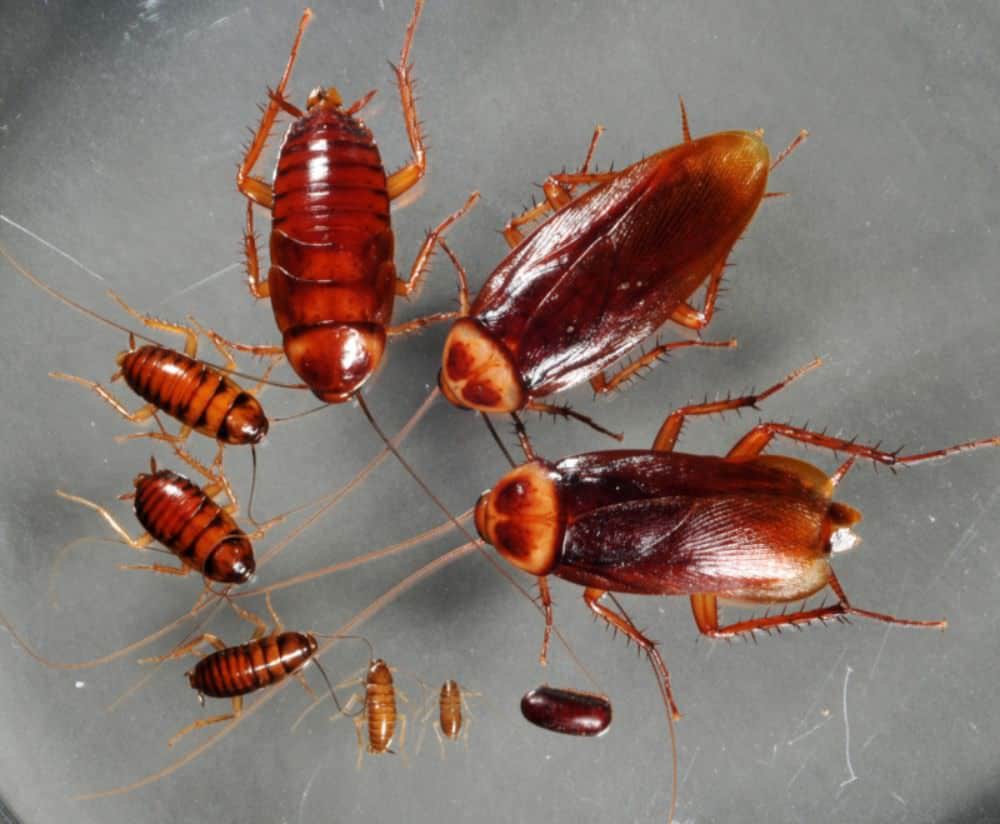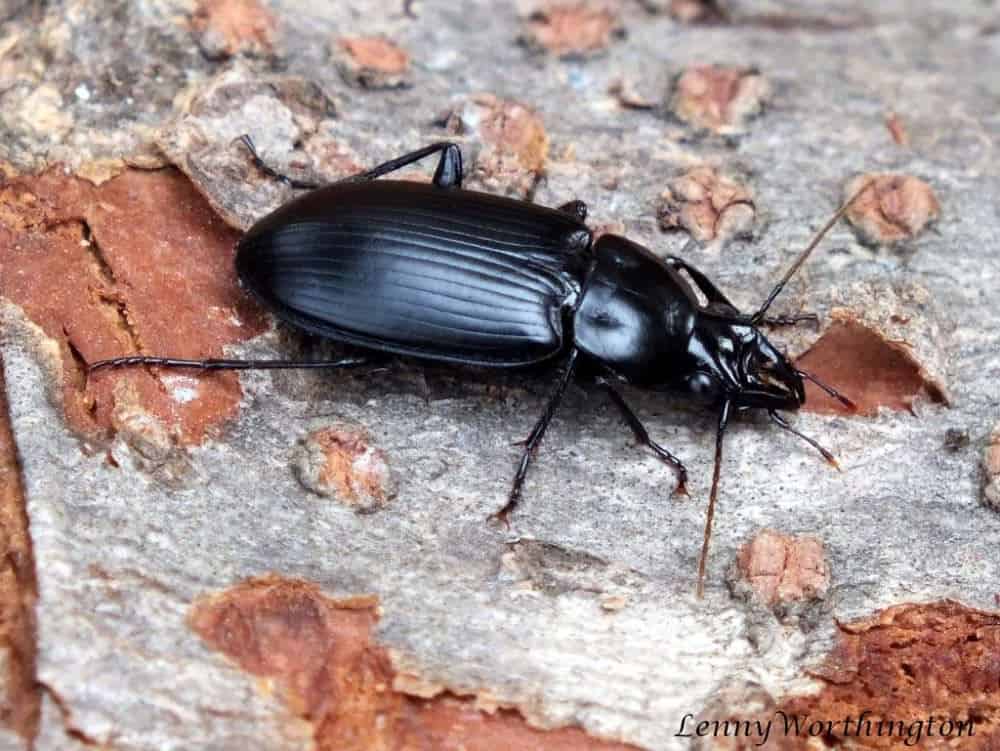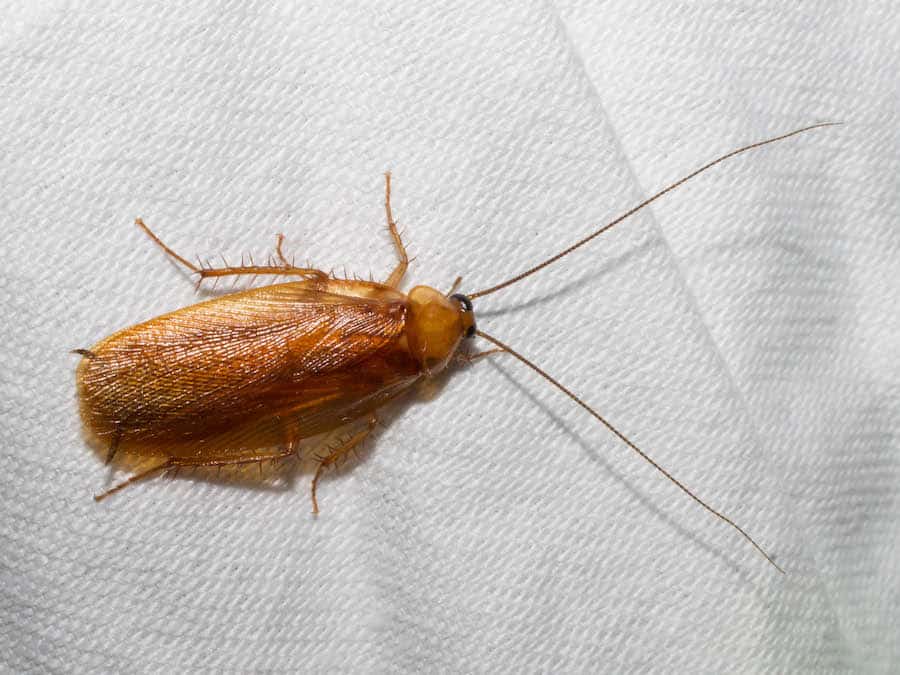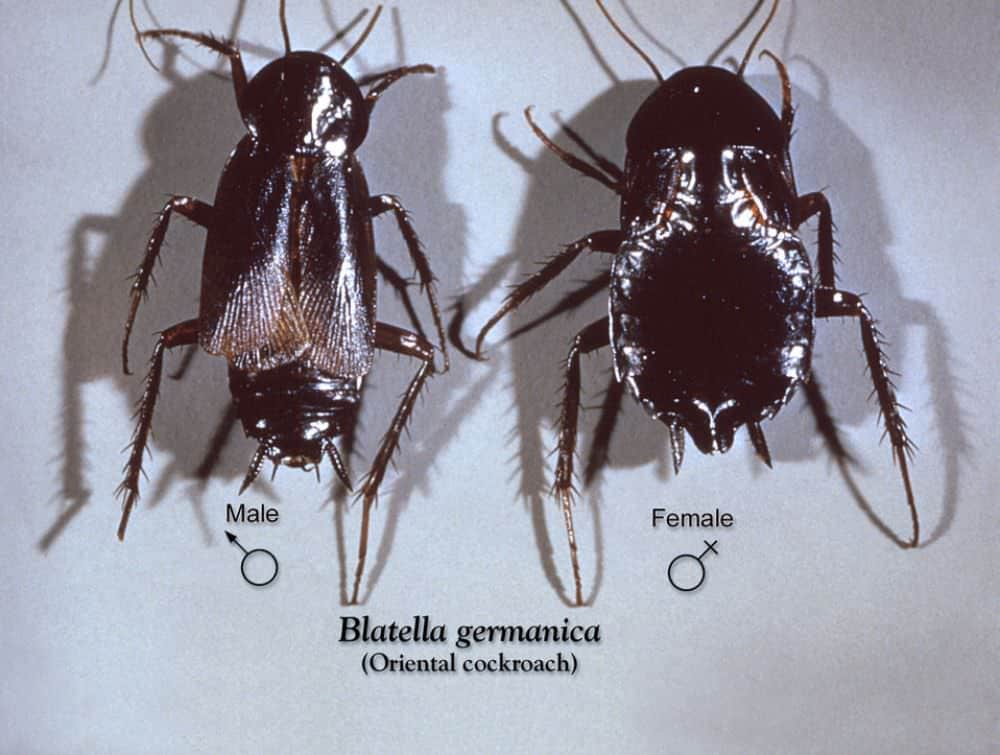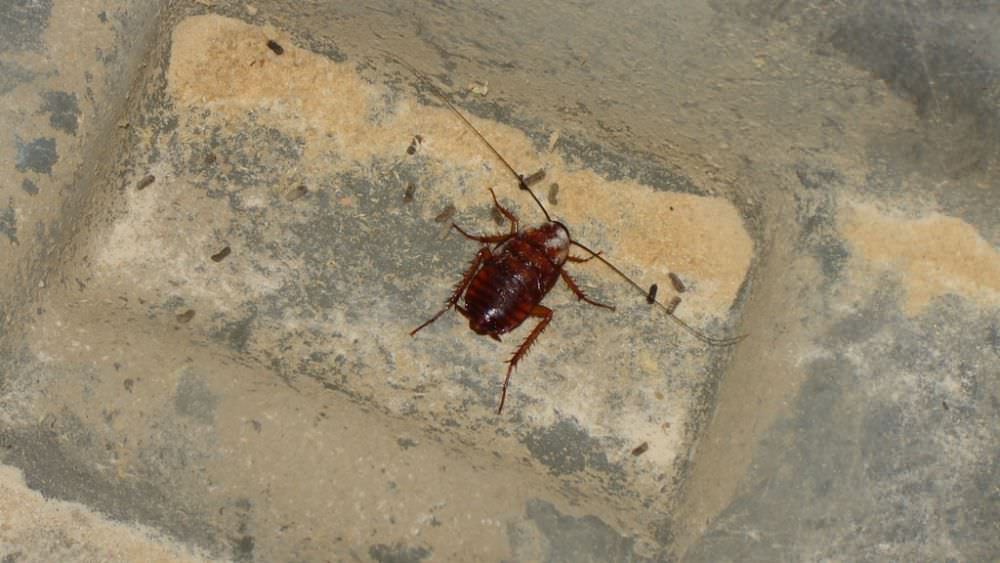Can You Use Borax & Boric Acid Against Cockroaches?
There are many anti-cockroach products on the market. Borax is one of the most well-known and popular substances. In this article, you will learn how to use boric acid to kill roaches.
You will discover what boric acid is and how it works. I will also cover the potential risks and precautions to take when you use this chemical.
What Is Boric Acid/Borax?
Borax and boric acid are chemicals derived from the mineral boron. This mineral exists naturally in the Earth’s crust and in the environment.
In the atmosphere, boron mixes with oxygen to produce borate compounds. These include boron oxide, boric acid, and boric acid salts. The latter is commonly referred to as borax.
Although they may sound similar, borax and boric acid are not identical. Each has multiple uses across different industries.
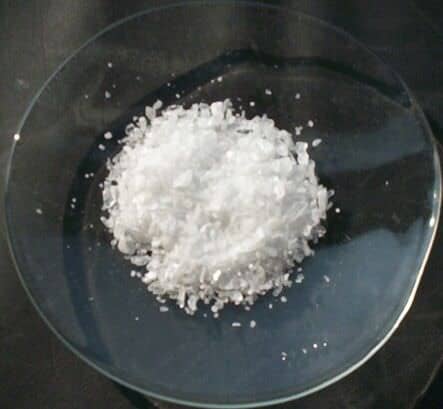
Boric Acid
Boric acid is a weak acid that has a range of applications. It has mild disinfectant and antifungal properties. It is also toxic to certain types of cells, such as those found in fungi.
For this reason, boric acid is a popular ingredient in insecticides, fungicides, and herbicides. Depending on the product, boric acid can be purchased in many different forms.
These include liquids, pellets, powders, pastes, and more. Boric acid insecticides are typically purchased as dust or powders.
An issue with other chemical insecticides is widespread toxicity. The insecticide may kill beneficial insects, like bees, as well as harmful ones. Wild animals or domestic pets can be poisoned by inhaling or ingesting the chemicals.
One of the advantages of boric acid is that it has low toxicity levels. Boron can be found in plants and even living organisms, including humans. This means that it does not intoxicate other living things, aside from fungi and certain insects.
Borax
Also known as tincal, borax has similar properties to boric acid. These salts are crystalline and colorless. You can find borax in many soaps, disinfectants, and mouthwashes.
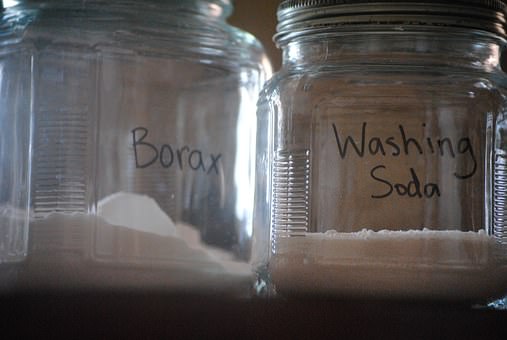
Borax is also used as a glaze in glass and pottery production. Even the metal industry makes use of borax. As with boric acid, it is a frequent ingredient in boron-based pesticides.
Does Borax Kill Roaches?
Borax can be used effectively against certain types of insects, mites, and spiders. You can also use non-insecticide borax (for example, laundry powder) for this purpose. However, it is preferable to use a registered insecticide, or other recommended roach killers.
Borax can eliminate targeted insects in one of two ways. If ingested, it will attack their nervous system. This leads to paralysis and eventual death.
This pesticide can also cause death by dehydration in some types of insects. If the bug walks through borax powder, it will stick to their body. Insects, like fleas, have a waxy outer cuticle. If this protective layer dries out, they will not survive.
With cockroaches, borax must be ingested to work. This occurs through self-grooming. The cockroach accidentally ingests the borax which was stuck to its body while cleaning itself.
Unlike other nuisance pests like mosquitoes, cockroaches have three life stages. They hatch from their eggs as immature versions of the adults. There is no larval or pupal stage, as with mosquitoes or fleas.
Baby cockroaches are known as nymphs. The nymphs of most species of cockroach are active shortly after they emerge from their eggs. Much like the adults, they emerge from hiding to forage and scavenge for resources.
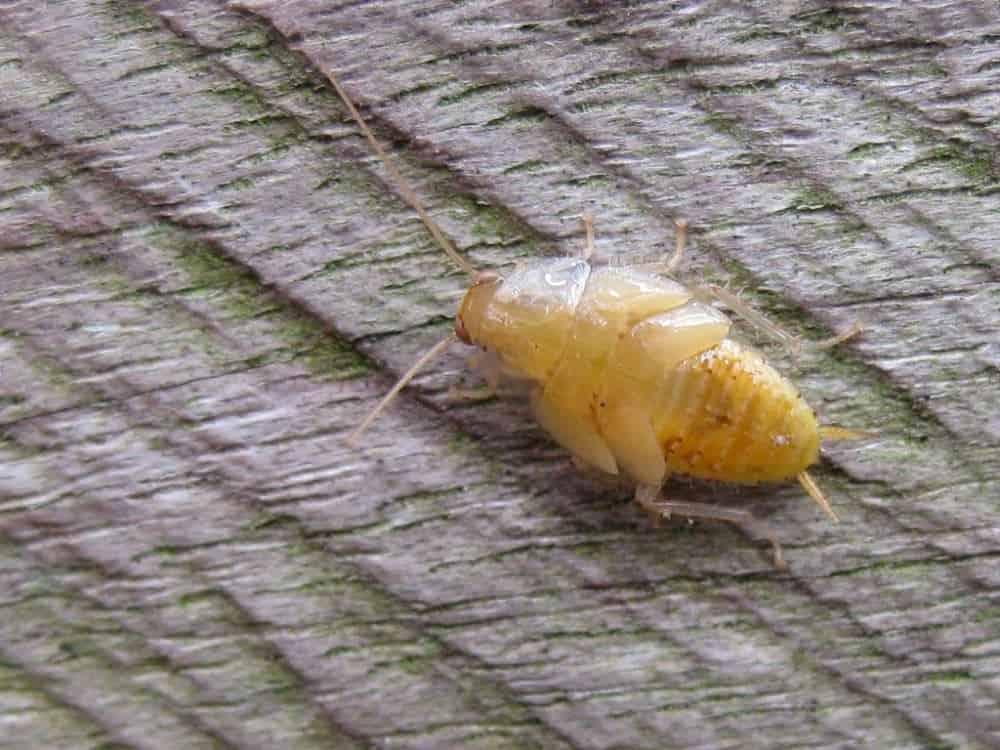
This means that borax can do damage to immature and mature cockroaches. Both adults and young are just as likely to walk through well-placed borax.
Female cockroaches that are brooding are less likely to end up poisoned. They remain in hiding with their eggs, eating little. Unless you can apply borax to every known cockroach hiding place, these females may be unaffected.
Borax does not produce immediate results. The cockroaches might only consume small amounts at a time. Therefore, it can take up to several days for enough borax to accumulate in the cockroach’s system, in order to kill it.
Take note that borax can be a dangerously corrosive substance if mishandled. Take extreme care not to allow borax near your eyes. If any gets on your skin, wash it off immediately.
Can Boric Acid Kill Cockroach Eggs?
Boric acid is an efficient weapon against cockroaches. As with borax, if the cockroaches ingest it, they will die.
Unfortunately, cockroach eggs are often difficult to access. They are either hidden or with the female. If the female is from an egg-carrying species, she is less active than usual. In turn, this means she is less likely to come across boric acid dust or powder.
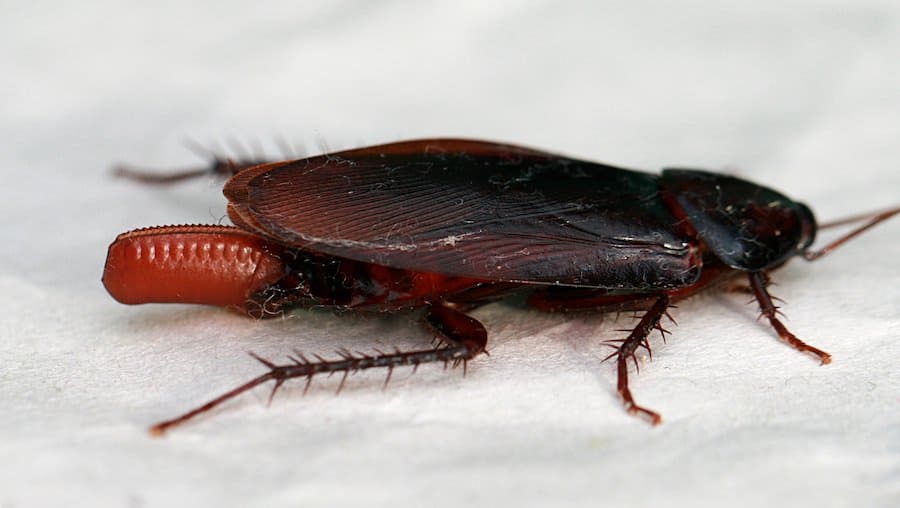
Boric acid can indirectly harm egg development, however. If a female ingests boric acid while carrying the ootheca, the eggs can die. However, a significant number of eggs are likely to survive.
Where Do Cockroaches Hide Eggs?
Female cockroaches lay eggs that are encased in an ootheca. This is a protective sac that can contain multiple eggs. The female will either keep the ootheca with her or deposit it.
An ootheca can be carried externally or internally. Some types of female will attach this egg pouch to their lower abdomens. The ootheca will remain stuck to her until the eggs are ready to hatch.
Others are able to retract the ootheca inside their body. They have specialized pouches to protect the ootheca as the eggs develop.
Certain species will carry the ootheca until the eggs are just about to hatch, while others find an early hiding place.
Females that do not carry the ootheca will normally secure it to a surface with “glue” from their saliva. Usually, the female will select an area that is dark and protected, such as a wall crevice. Anywhere dark, warm and moist is an optimal choice.
If you notice an ootheca, you can dispose of it manually. Cockroach nymphs emerge from their eggs fully independent and ready to forage. Even if you cannot destroy the eggs, the immature cockroaches can be killed in the same way as adults.
How to Use Boric Acid Against Roaches
You should implement multiple approaches when fighting a cockroach infestation. Boric acid is a potent weapon, yet it should be used alongside other strategies.
There are a few things to consider before you begin. Firstly, try to identify the species of cockroach in your home. This can help you learn specific traits to that species which will make it easier to find and kill them.
Next, know your enemy. Regardless of species, the majority of cockroaches share several traits. They are scavengers, nocturnal, and prefer to stay hidden.
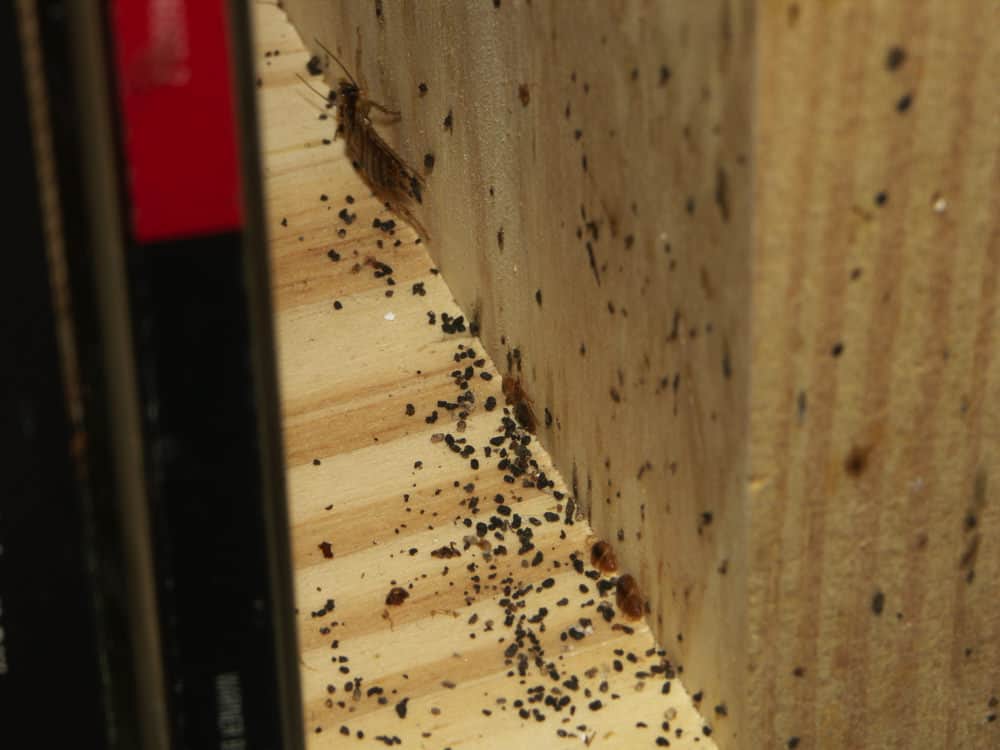
Boric acid insecticides must be placed carefully. This substance is not a repellent and cockroaches do not actively avoid it. This means you should apply it in locations where cockroaches have been spotted.
Treat hidden spaces, such as underneath the fridge or behind furniture. Apply boric acid anywhere you have seen cockroaches emerge from.
If you are using boric acid powder or dust, use a fine coating. Boric acid powder and dust have a long-term effect if kept dry. Unless the treated area gets wet, you do not have to worry about reapplication.
Pastes, gels, and liquids are ideal for cracks that cannot be sealed. They must be reapplied every few days. Once these dry out, the boric acid residue will evaporate.
Always follow product guidelines explicitly. Not all boric acid insecticides are formulated in the same way.
Sanitizing Your Home
You will need to prepare your home before using any insecticide. This involves eliminating the resources cockroaches require for survival. You want to try and make your home an inhospitable environment.
Sanitation is essential when it comes to a cockroach infestation. Remove neglected trash and refuse from your home. Ensure garbage cans are tightly sealed. Do not allow water to accumulate anywhere. Wipe away any crumbs or food residue from your kitchen cupboards and surfaces. Ensure all food items are properly sealed. Sweep, vacuum and mop your floors often, especially if you have have children and pets.
A messy or dirty home is an ideal breeding ground for cockroaches. Even inedible trash, such as piled up newspapers or clothing is beneficial to cockroaches. They do not like to move in the open and piles like this offer safe harbor.
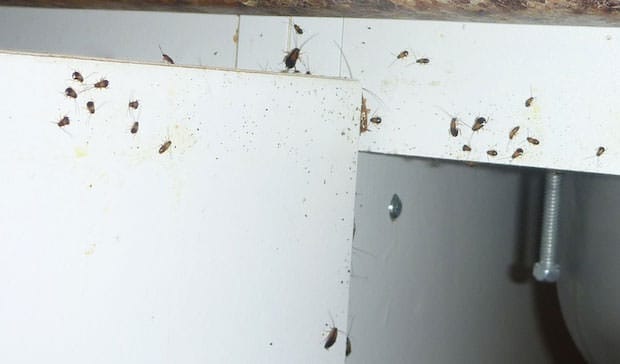
Seal crevices and cracks in your home. Cockroaches can enter your home from outside through vulnerable areas. It is important to maintain a clean home to avoid a repeat infestation.
Boric Acid Risks & Precautions
Boric acid is less toxic than other chemical insecticides. However, this does not mean that it should be handled carelessly.
Certain brands of boric acid are stronger than others. When you are using dust or powders, avoid inhaling them, wear a mask if possible. Wear gloves while applying gels. Boric acid can cause irritation to your throat, mouth, and nose.
Children and pets are more susceptible to accidental poisonings than adults. Your child may collect boric acid residue on their skin while playing on the floor. A curious pet could accidentally sniff or lick boric acid powder.
Therefore, you should only apply boric acid to locations your pets or children cannot access. Alternatively, keep pets and children away from treated areas until the infestation is dealt with. This can take a week or more, depending on the severity of the infestation.
Know the warning signs of boric acid poisoning. The symptoms manifest the same way in both animals and humans. They include vomiting, diarrhea, and seizures. Seek urgent medical attention if you suspect poisoning.
You can make good use of boric acid to kill roaches. However, it should not be the only tool in your arsenal against these pests. Sanitization and home maintenance both play vital roles in your battle against cockroach infestations.

